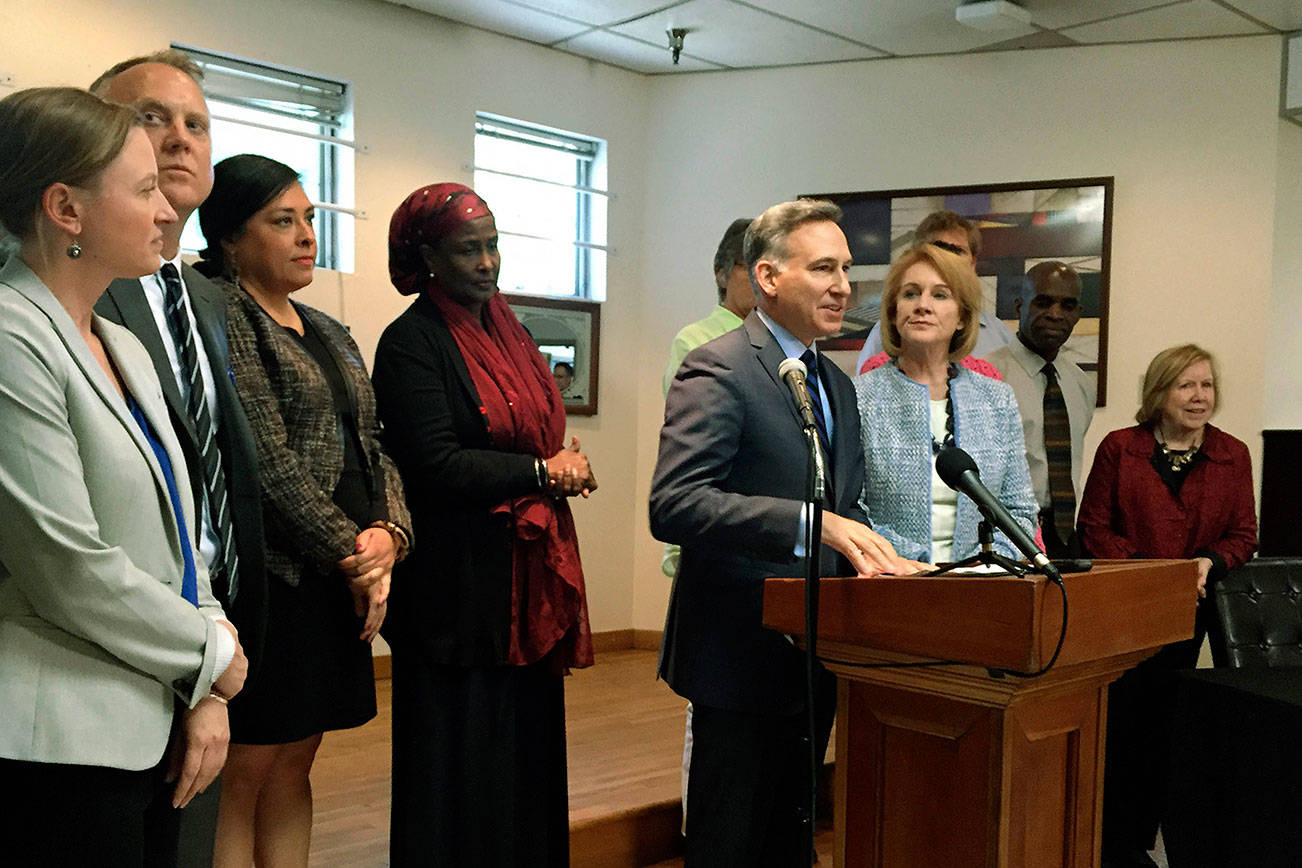King County Executive Dow Constantine and Seattle Mayor Jenny Durkan signed a “memorandum of understanding” today stating that they will develop a more centralized homelessness response system.
Specifically, the memorandum states that both Seattle and King County will develop recommendations on how to improve the governance structure of the current array of homeless services by Dec. 1, 2018. The development process will involve stakeholder input and assessment of various models of homeless services authorities in other cities—such as the Portland/Multnomah County Joint Office of Homeless Services.
The action comes after advocates and service providers for the homeless raised concerns that the lack of a centralized authority over regional homelessness responses hindered their ability to make an impact. All Home, King County’s official stakeholder body tasked with developing and coordinating the regional homeless response, has been called ineffective by its own members for its lack of power over how county and city governments spend money on homeless services.
A May 1 report from the King County Auditor’s Office added to the chorus of criticism, concluding that All Home’s non-existent power over local governments undermined its ability to advance a unified plan to combat homelessness.
Beyond systematic restructuring, the newly-signed Seattle and King County agreement also outlines several short-term goals. Housing and human service agencies from both King County and the City of Seattle will begin using joint contract language when funding non-profit service providers, which critics have argued that this will streamline the process. Additionally, the agencies will review their data collection practices for potential improvements, and establish “shared budget priorities” for addressing the regional homeless population.
“We are scrutinizing our own systems and our own governance structure,” Constantine said at a May 3 press conference alongside Durkan and board members of All Home. “For all of its success, All Home has made clear that they do not hold the authority to make the needed funding decisions or to direct service priorities.”
“One of the things that is holding us back is our fractured response to homelessness,” said Durkan. “Until now, the oversight has existed between the Seattle Human Services Department, the Seattle Office of Housing, the county Department of Community Health and Services, dozens of municipal entities, [and] All Home. … All of [them have] been working together as best they can, but it still has not unified responsibility with resources, with authority.”
Running parallel to this added layer of process is One Table—a 75-member group of stakeholders convened by Durkan, Constantine, and Auburn Mayor Nancy Backus back in December with the task of developing a regional homelessness response that addresses the “root causes of homelessness.” According to members of the task force, the group is not working on the governance issues that the memorandum intends to address.
One Table’s recommendations were slated to be rolled out in early May, but the date was pushed back by county officials who want to wait to see how the Seattle City Council’s proposed tax on big businesses, which could fund affordable housing, will play out.
At the press conference, Constantine said that One Table’s discussions are ongoing. “We are taking a few more weeks to refine our recommendations before we announce them next month.”
jkelety@soundpublishing.com
Talk to us
Please share your story tips by emailing editor@kentreporter.com.
To share your opinion for publication, submit a letter through our website https://www.kentreporter.com/submit-letter/. Include your name, address and daytime phone number. (We’ll only publish your name and hometown.) Please keep letters to 300 words or less.

